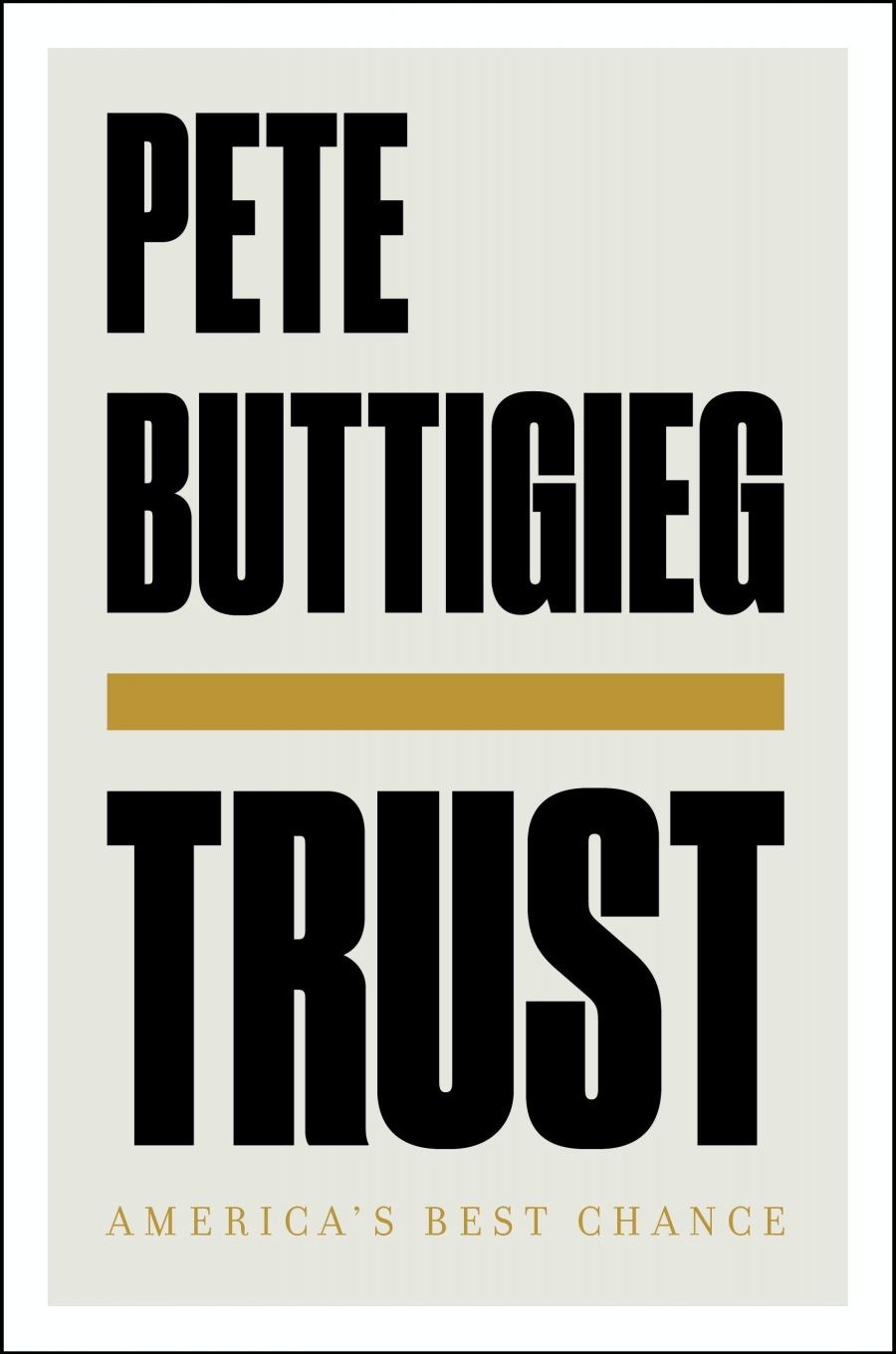
- Free Article: No
- Contents Category: Politics
- Review Article: Yes
- Article Title: An absence of trust
- Article Subtitle: Peter Buttigieg’s compelling manifesto
- Online Only: Yes
- Custom Highlight Text:
Serious observers of American presidential politics will not have missed the rapid rise to national prominence of Pete Buttigieg, the thirty-eight-year-old former mayor of the small Midwestern city of South Bend, Indiana. Within a year of announcing his candidacy for the Democratic presidential nomination, Buttigieg had made history as, in his words, ‘the first openly gay candidate to win a state in a presidential nominating contest – doing so as the first out elected official to even make the attempt’.
- Grid Image (300px * 250px):

- Book 1 Title: Trust
- Book 1 Subtitle: America’s best chance
- Book 1 Biblio: John Murray, $32.99 pb, 223 pp
- Book 1 Readings Link: booktopia.kh4ffx.net/ve4Pv
Trust is a meditation on what Buttigieg sees as the single biggest challenge facing America and other comparable nations in the age of populism fuelled by barely regulated social media. Buttigieg identifies a threefold ‘crisis of trust’ in America: ‘Americans distrust the institutions on which we depend. Increasingly we distrust each other. And the world trusts America less than perhaps it ever has.’
Buttigieg believes the crisis in trust within the United States is no more acutely felt than in the plight of African Americans. ‘Racism, implicit and explicit, is America’s most pernicious form of distrust. It is responsible for more death, more destruction, and more despair than any other force in American life. And that has always been true, robbing Black Americans of their social as well as physical freedoms.’ He describes how in the 1960s the writer and activist James Baldwin found sanctuary in Paris, which released him from what Baldwin memorably described as ‘a real social danger visible in the face of every cop, every boss, everyone’.
In broad political terms, the current crisis of trust appears to manifest what Richard Hofstadter, in a famous essay in the 1960s, dubbed ‘the paranoid style in US politics’. As Buttigieg points out, when Ronald Reagan entered the White House in 1981, he declared that government itself was a problem and not a mechanism for solving problems that would otherwise never be solved. Ironically, Buttigieg writes, thanks to decades of unreasonable attacks on government from the populist Right in particular, ‘the Reagan-era belief that government could not be trusted to do a good job became a self-fulfilling prophecy’.
That profound distrust of government itself has been fomented for decades among Republican voters, culminating in the anti-presidency of Donald Trump, a self-proclaimed non-politician with no record of public service who boasted of finding bureaucratic and legal loopholes and exploiting the tax system to become massively rich. With the advent of the Covid-19 pandemic, the true cost of having a president with no interest in providing good government for the nation became a nightmarish reality.
Born three years after Reagan’s inauguration, Buttigieg is part of a generation of US politicians on both sides of the aisle who served in the military in Iraq and Afghanistan. He joins an impressive cohort of veterans of America’s most recent wars; on the Democratic side it includes Senator Tammy Duckworth and Representatives Ted Lieu, Seth Moulton, and Max Rose.
A multilingual graduate in humanities from Harvard and a Rhodes Scholar, Buttigieg, whose father was an immigrant from Malta, was deployed to Afghanistan as a naval intelligence officer. It was while he was on active duty in war-torn Kabul that he first began to think seriously about the necessity of collective trust and the price we all pay when that trust is gone. ‘What I came to realise is this: trust, often unseen, is indispensable for a healthy, functioning society. And in the absence of trust, nothing that works can work well.’
Largely what makes Buttigieg’s account of trust so compelling is the combination of realism and optimism. He is well aware that bonds of trust are precious because of their inherent fragility. He also acknowledges that the easiest way for a politician to appeal to certain groups of voters is to sow seeds of division rather than to promote a notion of strength through unity and acceptance of all forms of diversity. ‘Getting people to trust you through consistent, hard-won credibility is difficult and time-consuming. But a shortcut to gaining trust is simply to ask people to join you in distrusting someone else.’
The good news, according to Buttigieg, is that humans do want to trust each other because we sense that this makes life better for each of us individually. ‘I think about the tension that exists between the necessity of trust, and the reality that people are not always trustworthy. At the same time, as we know from a mountain of evidence, the cost of too little trust is even higher than the cost of too much.’
With hope and faith – which, after all, are the necessary companions of trust – Buttigieg believes the social and political trust that has been lost in America can be rebuilt. ‘It is precisely because we are flawed, biased, sure to make mistakes and let others down, that we grapple with trusting each other. Yet we do manage to trust people and institutions even knowing that they are flawed by nature. Even more remarkably – and importantly, in this moment – we have a profound capacity to restore trust where it has been damaged.’
These are urgent and inspiring words from someone who might one day be president of the United States.


Comments powered by CComment